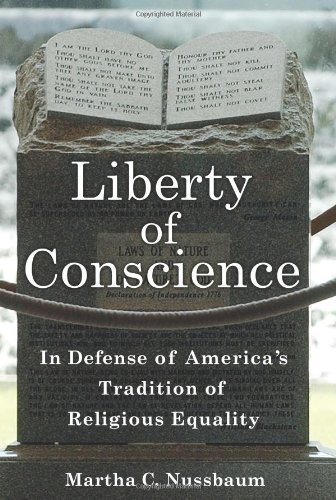
2007
First Published
3.83
Average Rating
416
Number of Pages
In one of the great triumphs of the colonial and Revolutionary periods, the founders of the future United States overcame religious intolerance in favor of a constitutional order dedicated to fair treatment for people's deeply held conscientious beliefs. It granted equal liberty of conscience to all and took a firm stand against religious establishment. This respect for religious difference, acclaimed scholar Martha Nussbaum writes, formed our democracy. Yet today there are signs that this legacy is misunderstood. The prominence of a particular type of Christianity in our public life suggests the unequal worth of citizens who hold different religious beliefs, or no beliefs. Other people, meanwhile, seek to curtail the influence of religion in public life in a way that is itself unbalanced and unfair. Such partisan efforts, Nussbaum argues, violate the spirit of our Constitution. Liberty of Conscience is a historical and conceptual study of the American tradition of religious freedom. Weaving together political history, philosophical ideas, and key constitutional cases, this is a rich chronicle of an ideal of equality that has always been central to our history but is now in serious danger.
Avg Rating
3.83
Number of Ratings
103
5 STARS
25%
4 STARS
45%
3 STARS
22%
2 STARS
4%
1 STARS
4%
goodreads
Author

Martha C. Nussbaum
Author · 32 books
Martha C. Nussbaum is Ernst Freund Distinguished Service Professor at the University of Chicago, appointed in the Law School and the Philosophy Department. Among her many awards are the 2018 Berggruen Prize, the 2017 Don M. Randel Award for Humanistic Studies from the American Academy of Arts and Sciences, and the 2016 Kyoto Prize in Arts and Philosophy.